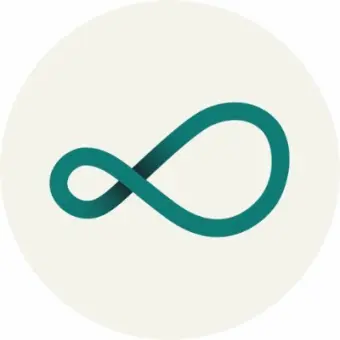Web3 Engineer (Solidity)

Obol
This job is no longer accepting applications
See open jobs at Obol.See open jobs similar to "Web3 Engineer (Solidity)" Archetype.Lisbon, Portugal
Posted 6+ months ago
Who Are We?
Obol Labs is a remote-first research and software development team focused on Proof of Stake infrastructure for public blockchain networks. Specific topics of focus are Internet Bonds, Distributed Validator Technology, and Multi-Operator Validation. The core team includes 28 members spread across +12 countries.
The core team is building the Obol Network, a protocol to foster trust-minimized staking through multi-operator validation. This will enable low-trust access to Ethereum staking yield, which can be used as a core building block in various Web3 products.
The Network
The network can be best visualized as a work layer that sits directly on top of the base layer consensus. This work layer is designed to provide the base layer with more resiliency and decentralization as it scales. In this chapter of Ethereum, we will move on to the next great scaling challenge, which is stake centralization. Layers like Obol are critical to the long-term viability and resiliency of public networks, especially networks like Ethereum.
Obol as a layer is focused on scaling main chain staking by providing permissionless access to Distributed Validators. The network utilizes a middleware implementation of Distributed Validator Technology (DVT), to enable the operation of distributed validator clusters that can preserve validators' current client and remote signing configurations.
Similar to how roll-up technology laid the foundation for L2 scaling implementations, we believe DVT will do the same for scaling the consensus layer while preserving decentralization. Staking infrastructure is entering its protocol phase of evolution, which must include trust-minimized staking networks that can be plugged into at scale. We believe DVT will evolve into a widely used primitive and will ensure the security, resiliency, and decentralization of public networks.
The Obol Network develops and maintains four core public goods that will eventually work together through circular economics:
The DV Launchpad, a User Interface for bootstrapping and managing Distributed Validators
Charon, a middleware Golang client that enables validators to run in a fault-tolerant, distributed manner
Obol Managers, a set of solidity libraries for the formation of Distributed Validators tailored to different use cases such as DeFi, Liquid Staking, and Fractionalized Deposits
Obol Testnets, a set of ongoing public incentivized testnets that enable any sized operator to test their deployment before serving for the Ethereum Main net
Sustainable Public Goods
Obol is inspired by previous work on Ethereum public goods and experimenting with circular economics. We believe that to unlock innovation in staking use cases, a credibly neutral layer must exist for innovation to flow and evolve vertically. Without this layer, highly available uptime will continue to be a moat.
The Obol Network will become an open, community-governed, self-sustaining project over the coming months and years. Together we will incentivize, build, and maintain distributed validator technology that makes public networks a more secure and resilient foundation to build on top of.
Mission of the role Obol’s mission is to decentralize Ethereum by enabling Distributed Validators, to this end, we build dApps, smart contract integrations, SDKs, wallet integrations, and more. We need to monitor the chain, index it, report and alert on it, enable web3 developers to bootstrap Distributed Validators as part of their dapps with it, and more.
The mission of this role is to enable the adoption of DVs across the entire staking community, by building software to make it easy to do so. Facilitating the deployment of solidity contracts, incorporating more wallet types into UIs, helping validator launcher projects support DVs, and developing reference implementations and starter kits.
This role is focused on making Distributed Validators software ubiquitous and community-owned.
Responsabilities
- Design, prototype, and develop solidity integrations facilitating the incorporation of Distributed Validators into Ethereum staking solutions.
- Build tooling and documentation to make deploying DVs programmatically easy for developers.
- Review pull requests and maintain open-source repositories.
- Ensure a high standard of testing for all production software.
- Participate in the development of the DV protocol, a smart contract-based system to allow people to run DVs with one another in a low-trust environment.
Requirements
- Experience in solidity development
- Experience creating Ethereum applications, from front-end to contracts, with production use.
- Knowledge of React and its associated web3 development frameworks such as ethers, viem, or others.
- Knowledge of test driven development and effective software testing in a web3 context.
- Ideal Time zone from GMT-8 to GMT+3.
Nice to have
- Public GitHub contributions to high-quality projects in the Ethereum or broader Web3 space.
- Experience in serving real-time and historical chain data at scale to a front end.
- Experience with wallet integration.
- Experience running an Ethereum validator or node.
Benefits
- Competitive compensation
- Annual Global Off-site
- Annual opportunity to attend DevCon (or a blockchain conference of choice)
- Unlimited paid time off
- Budget for personal equipment
- Budget for training or education
We are a remote first company hiring around the world. Join us ❤️
Thank you for your interest. Looking forward to building amazing stuff together!
This job is no longer accepting applications
See open jobs at Obol.See open jobs similar to "Web3 Engineer (Solidity)" Archetype.